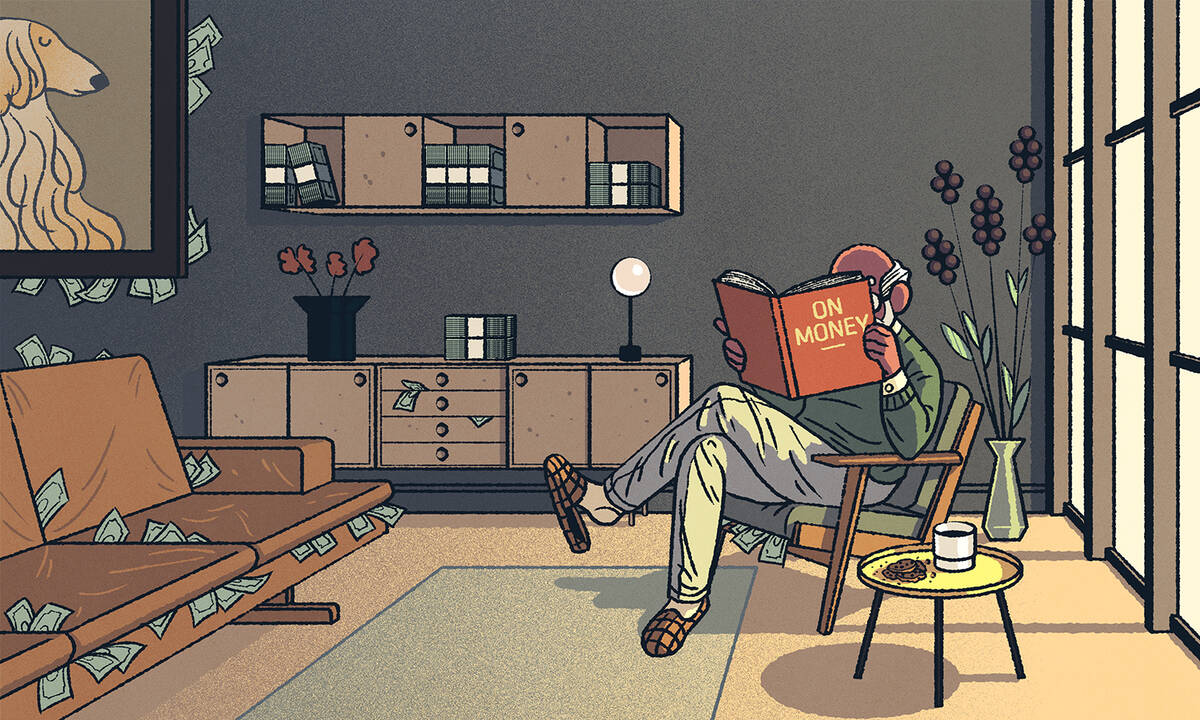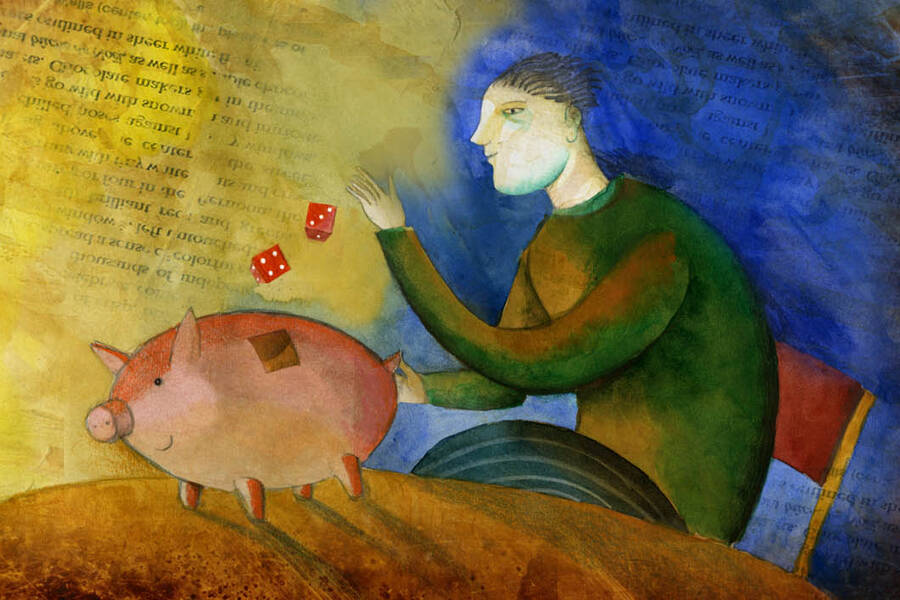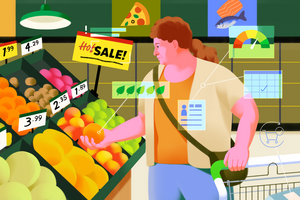Here are findings and insights from Kellogg faculty on credit and debit cards, inflation, checking accounts, and 401(k)s that show the surprising ways personal-finance decisions ripple out.
You’ve probably seen ads for credit cards offering all kinds of enticing goodies: cash rewards for purchases, access to fancy airport hotel lounges, points for hotel stays, and more. If you’re lucky enough to have one of these cards in your wallet, the 1.5 percent cash back probably feels like pennies from heaven.
But where is this “free” money really coming from, and why are credit-card companies so eager to dole it out?
Lulu Wang, an assistant professor of finance at Kellogg, found that payment networks such as Visa, Mastercard, and American Express use rewards to compete for customers—and fund those perks by increasing the fees they require merchants to pay.
Merchants are left holding the bag and, in response, pass their increased costs on to consumers. In other words, credit-card freebies are costing us all, regardless of how we choose to pay.
“The rational consumer response is, do whatever makes sense for your own financial health and get the rewards if you want,” Wang says. “The ethicist might say something like, ‘Would you be willing to put $100 in your pocket by stealing a penny from 10,000 people?’”
Many experts recommend switching from credit cards to debit cards to avoid accumulating debt. But could using a debit card have other benefits as well?
In a study of Mexican households receiving government payments, Kellogg’s Sean Higgins found that a switch from cash transfers to debit cards reduced spending and increased savings.
The study also found a domino effect: more businesses—especially small retailers like corner stores—installed terminals to accept the government program’s debit cards. And this wider adoption attracted customers beyond those enrolled in the program—the richest 20 percent of all consumers shifted 13 percent of their supermarket consumption to corner stores.
While the research focused on the policy implications of a program used to fight poverty, these results suggest that increased usage of debit cards could have benefits beyond the original intent.
“The findings on spillover benefits to small retailers and richer consumers suggest that this type of policy to subsidize financial inclusion could be politically popular,” Higgins says, “even among the richer households that pay a larger share of taxes.”
Since the Covid-19 pandemic, we’ve been all too familiar with inflation at the grocery store and beyond. But a study led by Kellogg’s Sergio Rebelo of why prices rise “like rockets” but fall “like feathers” suggests that consumers may benefit from these jolts in the long run.
The study used a framework on decision-making popularized by psychologist Daniel Kahneman. In his book Thinking Fast and Slow, Kahneman proposed that people either run on autopilot and make choices based on past decisions that have been working well enough, or think more deeply about choices, which is mentally taxing but likely results in a better decision.
When prices are stable, consumers choose the first option, sticking with their familiar brands. But during periods of hyperinflation, consumers are more likely to take the second option and look for opportunities to save money by changing habits.
The desire to avoid this scrutiny explains some confusing pricing practices, such as shrinkflation—when companies keep the price of a product stable but reduce its size. But when prices are forced to rise dramatically, a silver lining is that consumers start making smarter decisions.
“It’s a trade-off,” Rebelo says. “You don’t want the cognitive burden of people in hyperinflation, but you don’t want people to get stuck in their old ways where whatever errors they’ve been making are going to be with them forever. You want to jolt people into optimizing a little bit.”
One of the best things you can do for your financial future is save for retirement. And according to economist Benjamin Harris, the best time to start saving for retirement is early. Really early. Like at birth.
Ultimately, building a retirement fund means ensuring financial security for those golden years, says Harris, who was the Executive Director of the Kellogg Public–Private Initiative before becoming Assistant Secretary for Economic Policy in the Biden Administration’s Department of the Treasury.
“You get to a point in your life when working is no longer a strong option because you become less productive or because you want to make yourself happy,” Harris, says. “The only way you can make that happen is to have some sort of income during that period.”
He offers several steps people can take to achieve those long-term goals: Make sure you’re meeting your employers matching 401(k) contribution. Find financial advisors who don’t charge excessive fees. And consider a longevity annuity that pays a set income once retirees reach an advanced age.
But paramount, for both you and your children, is learning financial literacy. Policies like child trust accounts could help reinforce good habits at a young age, Harris says.
“As a child, you’d know about this account and learn about saving for the future,” he says. “But the main idea is from literally the first day of a person’s life, you get them saving.”
When a couple is married, establishing a shared household means merging finances. It can be a fraught conversation, as research shows that money is a leading cause of arguments between partners.
But a study from Kellogg School professor Eli Finkel shows one way couples can help preserve their relationship during those critical first years of marriage: by going all in on a joint bank account.
The researchers determined that a joint bank account can help couples align their financial goals and adhere to communal norms, rather than behave in a more transactional way. If all money is everyone’s money, then partners don’t need to keep score.
The researchers tracked 230 engaged or recently married couples and sorted them into joint-account, separate-account, or no-intervention groups. Couples assigned to maintain completely separate accounts and those left to their own devices showed significant declines in relationship quality over time.
But couples who were instructed to merge all their money into a joint account did not exhibit those same declines. They maintained the quality of their relationship and also showed greater financial harmony than the other couples.
“The effect was even bigger than I anticipated,” Finkel says. “Most every study shows that satisfaction declines after the wedding day. We were delighted that we were able to take a sample of newlyweds and show [that] not only did their marital quality not decline, it might have even increased slightly. And we didn’t train them on how to connect better or have better communication skills. The account structure itself was sufficient to keep people happier throughout the newlywed period.”




